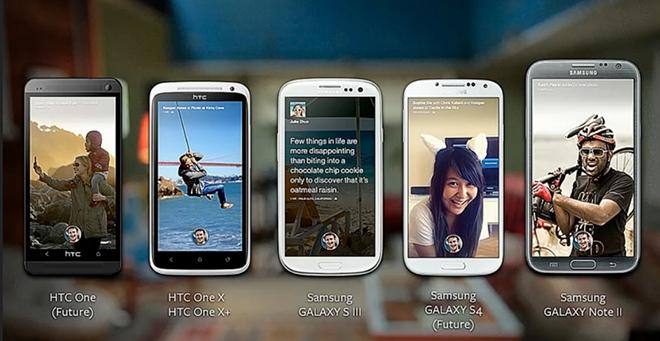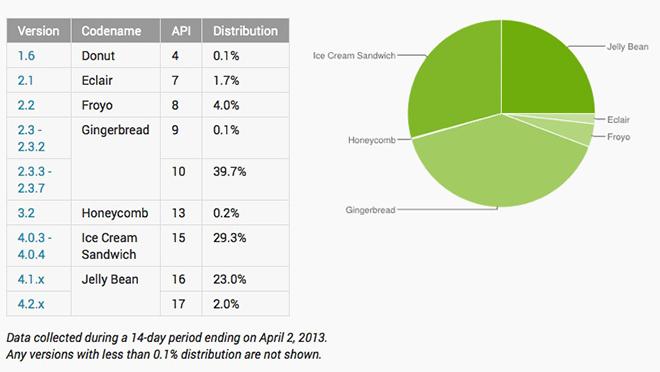The "openness" of Google's Android platform may have made Facebook's new Home experience possible, but the fragmented nature of the Android market means that nearly half of all Android users will be unable to run its new Home feature.
Facebook Home will initially be available for six phones.
Facebook Home will not run on Android 2.3 Gingerbread or lower, Facebook CEO Mark Zuckerberg revealed today in a question-and-answer session following Home's unveiling. Initially released in February of 2011, Gingerbread is still the Android version for roughly 40 percent of the Android install base, according to Google's most recent figures. Roughly seven percent of Android devices run an older version of the OS.
The more than 50 percent of Android devices running either version 4.0 Ice Cream Sandwich or versions 4.1 and 4.2 Jelly Bean will, presumably, be able to run Facebook Home, though likely not until some time after launch. Zuckerberg pointed out both during and after the Home presentation that the launcher will be reserved to six devices initially: the HTC One and One X, Samsung's Galaxy S III, S4, and Note II, and the just revealed HTC First, which is said to be optimized for the Facebook Home experience.
Further, the launcher will not be available for Android tablets until some time after launch. Facebook has said that it is working on Home for tablets.
Whereas Apple controls both the hardware and software underlying its iOS devices — and thus has a much smaller set of configurations to develop for — Google makes Android available to a wide array of manufacturers. Some of these manufacturers are diligent in updating their devices to recent versions of Android, but a large number aren't. Due to either technical limitations or fiscal infeasibility, hundreds of millions of Android devices are running a now two-years-outdated version of the operating system.
This fragmentation among the Android install base has proved a significant problem for developers, as they must program their apps not only to account for a vast array of hardware configurations, but also to account for 40 percent of their potential audience using a two-year-old OS. Google has been taking steps to address the fragmentation issue, trying to encourage manufacturers to update their devices, but even Google-owned Motorola has had to abandon update schedules for some handsets due to financial and development realities.
 Kevin Bostic
Kevin Bostic








-m.jpg)






 Charles Martin
Charles Martin
 Christine McKee
Christine McKee
 Wesley Hilliard
Wesley Hilliard
 Malcolm Owen
Malcolm Owen
 Andrew Orr
Andrew Orr
 William Gallagher
William Gallagher
 Sponsored Content
Sponsored Content








71 Comments
Hilarious.
I tolerate Facebook because some family/friends don't want to venture out and try other social networking platforms. I see no reason to use "Home", so I can't say I'm devastated that Facebook's glorified bloatware won't run on my Galaxy Nexus right away.
Zuckerberg unclear on iOS Facebook Home, says Android's openness allows unique experiences LOL Yes, a "unique" experience indeed.
deleted
This article is a little bit silly and skewed. Facebook is right in not developing for older versions of Android, just like developers now do not support iOS 4 and lower. The real issue is the device carriers being able to control the releases of newer versions of Android keeping people from having more modern software on their phones, not that there are different versions of the Android OS.